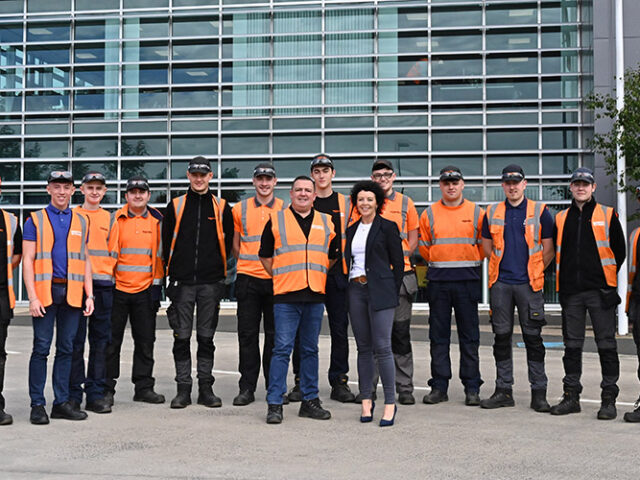Aquapak disclosed details of an innovative ‘Prosperity Partnership’ with the University of Birmingham, aimed at addressing the pressing plastic waste issue, which poses a substantial societal challenge.
This three-year endeavour, boasting collaboration among esteemed experts, secures funding from the Engineering and Physical Sciences Research Council (EPSRC), Aquapak, Siemens, and the University of Birmingham, pooling a resource of £1.7M.
Plastics are currently indispensable due to their lightweight yet durable nature; however, the disposal of these materials typically results in harmful environmental impacts. Predominantly, end-of-life plastics are either buried, discarded, or burnt, contaminating land and water, and significantly contributing to atmospheric CO2 emissions, thus aggravating the broader climate crisis. The main alternatives to these detrimental disposal methods are the adoption of biodegradable polymers or the enhancement of plastic recyclability. This partnership between Aquapak and the University of Birmingham strives to advance the broader implementation of both strategies.
Aquapak has already made strides by bringing to market Hydropol, an innovative, high-performance environmental polymer designed to fit within a circular economy, promoting recycling and offering various disposal options. The initiative will further advance Aquapak’s existing polymer solutions, which match or surpass traditional plastics in terms of durability and flexibility while being recyclable and biodegradable. A pivotal goal is to create new bio-based polymers and to increase the production process’s energy and resource efficiency through evolutionary optimisation techniques, affirming sustainability.
The partnership has three core objectives: first, to harness the collective expertise to enhance Aquapak’s digital R&D capabilities significantly; second, to leverage these enhanced capabilities for swift, AI-driven optimisation and growth of Aquapak’s processes and new product development with unique features; third, to foster broader uptake of Aquapak’s environmentally-friendly polymer solutions, thus contributing to the resolution of the global plastic dilemma.
The venture assembles a top-tier interdisciplinary research team from the University’s Schools of Chemical Engineering, Chemistry, Mechanical Engineering, Metallurgy & Materials, and Physics. This team has access to a wide range of tools, including leading positron, x-ray, and optical imaging capabilities, along with particle, fluid, process, and chemical kinetic modelling capabilities. It also utilises a diverse set of ML, AI, and data science expertise, supported by state-of-the-art experimental and computational facilities.
Dr John Williams, Chief Technology Officer at Aquapak, remarked: “This is an exciting project which brings together Aquapak’s expertise with leading experts from a range of disciplines from the University of Birmingham. The objective is to optimise and scale up Aquapak’s capabilities and support the discovery and development of new products.”
Dr Kit Windows-Yule, the project’s lead at the University of Birmingham, commented: “This is an important partnership between two institutions which has the potential to solve one of the greatest environmental challenges of our time and stands to bring significant economic benefit to an area where three-fifths of households live in deprivation.”




